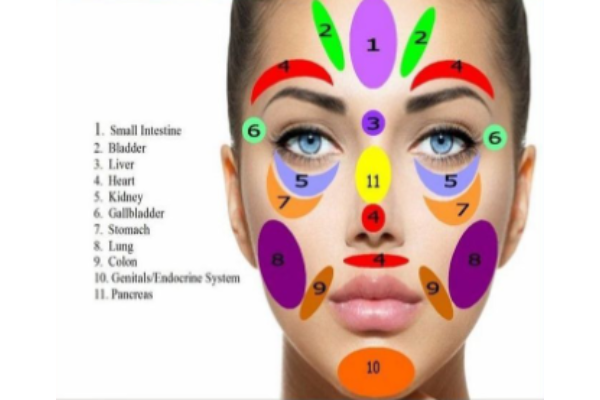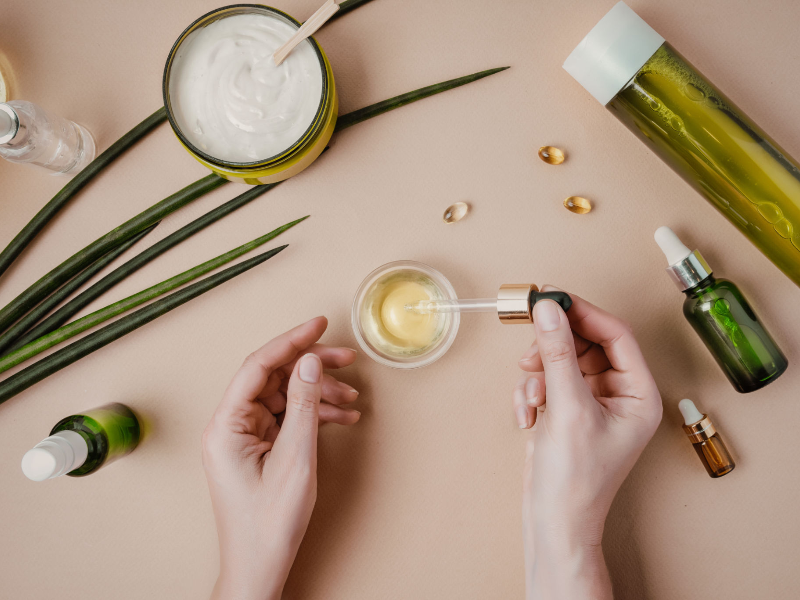Have you ever wondered why acne seems to show up at the worst possible time? For many women, those stubborn breakouts on the jawline or chin aren’t just bad luck—they’re hormonal acne. Unlike occasional pimples, hormonal acne is often persistent and linked to changes happening inside your body.
Hormonal acne for women can happen during menstruation, pregnancy, or even menopause. It can feel frustrating, especially when nothing seems to work. However, the good news is that natural solutions can help you regain control and achieve clear, glowing skin. By addressing these hormonal changes and taking simple, practical steps, you can finally start your journey to healthier skin.
Understanding Hormonal Acne for Women
What is Hormonal Acne?
Hormonal acne for women happens because of changes in key hormones like estrogen, progesterone, and androgens. These changes often occur during puberty, periods, pregnancy, or menopause. As a result, they cause your skin to produce too much oil, which clogs pores and leads to breakouts.
Unlike other types of acne, hormonal acne tends to flare up at certain times of the month. For example, many women notice breakouts just before their period. This kind of acne can also continue into adulthood, making it a long-term concern for some women. Learn more about how hormones affect skin on the American Academy of Dermatology website.
How Do Hormones Affect Your Skin?
Hormones are natural chemicals in your body that control many functions, including your skin’s health. When they are unbalanced, they can make your skin produce more oil than usual, causing acne. Additionally, stress hormones like cortisol can make acne worse by increasing redness and swelling.
For some women, health conditions like PCOS (Polycystic Ovary Syndrome) or pregnancy can also make hormonal acne worse. This is why balancing hormones is so important for clear skin.
Where Does Hormonal Acne Appear?

Hormonal acne usually shows up on the jawline, chin, and lower cheeks—this area is often called the “hormonal zone.” These spots are especially sensitive to hormonal changes. On the other hand, acne caused by other factors, like dirt or makeup, might appear on the forehead or nose. Recognizing these patterns can help you figure out if your acne is hormonal or caused by something else.
Effective Natural Solutions for Clearer Skin
A. Dietary Changes to Balance Hormones

What you eat plays a big role in your skin’s health. If you’re dealing with hormonal acne, making small changes to your diet can make a big difference.
- Avoid Dairy and Processed Foods
Dairy, especially skim milk, often has hormones that can upset your body’s balance. Processed foods high in sugar can also make acne worse by increasing your insulin levels. Instead, try switching to plant-based milk, like almond or oat milk, and focus on eating fresh, whole foods. - Add Foods That Balance Hormones
Vegetables like broccoli and kale, along with foods rich in omega-3s (like salmon, walnuts, and chia seeds), can help balance your hormones. These foods also reduce redness and swelling, making your skin look clearer. - Drink Plenty of Water
Staying hydrated helps your body get rid of toxins and keeps your skin soft and smooth. You can add lemon or cucumber slices to your water for extra flavor and benefits.
B. Building the Right Skincare Routine for Hormonal Acne

Your skincare routine is just as important as your diet when it comes to managing hormonal acne. Using the right products can help calm breakouts and prevent future ones.
- Wash Your Skin Gently
Clean your face twice a day with a gentle cleanser that won’t clog your pores. Look for cleansers with salicylic acid, which helps reduce oil and clear your skin. Avoid scrubbing too hard, as it can irritate your skin. - Try Natural Remedies
Natural ingredients like aloe vera gel, tea tree oil, and witch hazel can help reduce acne. They are great for calming redness and speeding up healing. - Exfoliate Gently
Exfoliating once or twice a week helps remove dead skin cells and keeps your pores clear. However, be careful to use gentle products, like those with AHAs or BHAs, to avoid irritating your skin.
Read More
C. Daily Habits That Improve Skin Health

Changing small habits in your daily life can also improve hormonal acne.
- Lower Stress Levels
Stress makes your body produce cortisol, which can make acne worse. You can reduce stress by trying relaxation activities like yoga, meditation, or journaling. - Get Regular Exercise
Physical activity improves blood flow, reduces swelling, and helps balance your hormones. Whether it’s walking, dancing, or swimming, choose something you enjoy so you can stick to it. - Get Enough Sleep
Your body repairs itself while you sleep, including your skin. Aim for at least 7-8 hours of sleep each night to give your skin time to heal and look refreshed.
Additional Tips for Hormonal Acne
Even small changes can help you manage hormonal acne:
- Don’t Touch Your Face
Picking at pimples can cause scars and spread bacteria, making acne worse. Keep your phone and pillowcases clean, as these can also transfer dirt to your skin. - Always Wear Sunscreen
Sunscreen protects your skin from damage caused by the sun. Choose a lightweight sunscreen that won’t clog your pores. - When to See a Doctor
If your acne doesn’t improve with natural solutions, talk to a dermatologist. They might recommend treatments like hormonal medications or stronger creams.
Hormonal acne for women doesn’t have to be a lifelong struggle. By making small changes to your diet, skincare routine, and daily habits, you can improve your skin and feel more confident. Clear skin doesn’t happen overnight, but with patience and consistency, it’s achievable.
If you’re ready to take control of your skin health, start with these tips today. For more resources, visit trusted websites like the American Academy of Dermatology or explore hormone-friendly products to help you on your journey.




